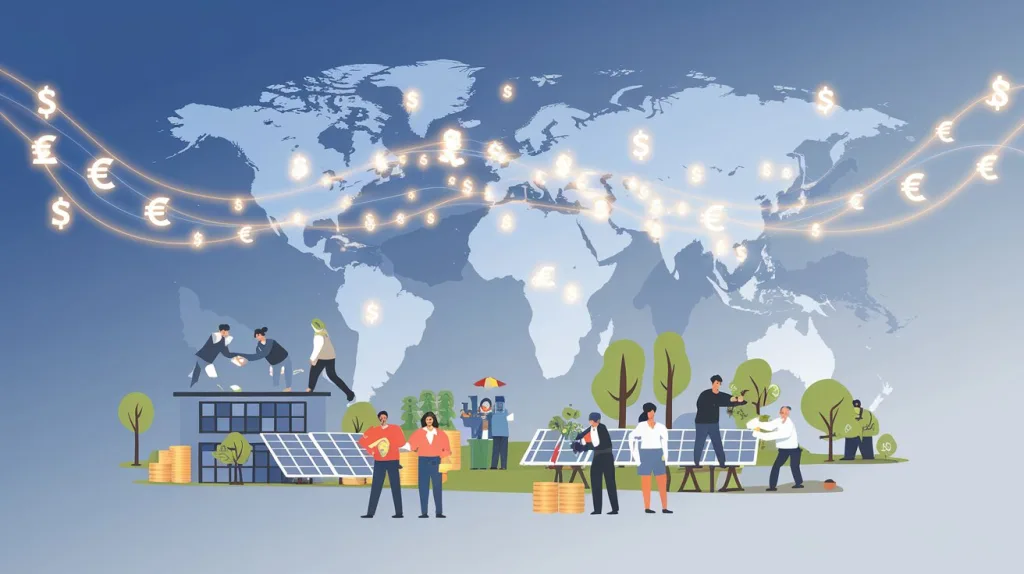
As COP29 unfolds in Baku, Azerbaijan, the global community finds itself at a pivotal juncture. The Conference of the Parties (COP) has always been a cornerstone for shaping climate action, and this year’s event is no different. With world leaders, businesses, and activists converging to tackle complex issues like climate finance, fossil fuel transitions, and adaptation strategies, the stakes couldn’t be higher.
What does this mean for businesses across the globe? Here are our two cents and key takeaways so far, about how the conversations at COP29 are setting the stage for a more sustainable future.
The announcement that multilateral development banks will scale up climate finance to $120 billion annually by 2030 is a major milestone. This commitment is a testament to the growing recognition that financial resources are essential to driving change, particularly in low- and middle-income countries. UN Secretary-General António Guterres framed it perfectly: “Climate finance is not charity. It’s an investment.”
For businesses, this is a powerful reminder. Sustainability is no longer a box to check—it’s a growth strategy. Companies that align their operations with the flow of climate finance are not only safeguarding the planet but also positioning themselves for long-term competitiveness.

Within the finance track, the “UAE Dialogue” introduced a new layer of complexity by addressing the Global Stocktake and fossil fuel reduction. While it created room for innovative approaches, it also indicates the intricate balance required to navigate diverse interests.
For corporations, this is a cue to think big but tread thoughtfully. Ambition should be paired with accountability. Initiatives like the newly adopted Article 6.4 standards for UN carbon markets showcase how businesses can engage in carbon trading internationally. These tools are practical, but their success hinges on transparency and measurable outcomes.
One of the most significant challenges remains the global reliance on fossil fuels. As countries pledge to move away from fossil-fuels and boost their renewable energy capacities, there is a need for a “balanced energy mix”. A combination of renewables, hydrogen, biofuels, and carbon capture would provide for more flexibility and resilience in meeting future energy demands.
Here lies an open invitation for businesses to innovate. Whether through integrating renewable energy sources, adopting carbon capture technologies, or exploring emerging solutions like nuclear fusion, the private sector has a unique role in driving the transition.
While mitigation strategies often dominate headlines, adaptation remains equally critical. The WMO’s report on water shortages—projecting over 5 billion people affected by 2050—is a stark reminder of the urgent need to adapt.
This is where businesses can shine. Companies in water-intensive industries, such as agriculture and manufacturing, have the chance to lead by implementing water conservation strategies. Beyond risk mitigation, these efforts contribute to a more resilient and sustainable future for all.
Global efforts on methane reduction intensified with the US announcing new rules for oil and gas producers which includes fees for excess methane emissions. This comes as a significant development targeted at one of the most potent greenhouse gases. Methane often flies under the radar in discussions about emissions, but policies like this one ensure it gets the attention it deserves.
For businesses, particularly those in energy and agriculture, this highlights the need to think holistically. Tackling emissions isn’t just about CO2—it’s about addressing the entire spectrum of environmental impacts.
At COP29, one of the most exciting themes has been the potential of digital technologies to enhance climate resilience. From early warning systems for extreme weather to analytics-driven climate risk assessments, technology is enabling smarter, faster, and more effective responses to climate challenges.
Imagine a world where every vulnerable community receives timely alerts about impending climate disasters. Businesses can help turn this vision into reality by investing in and adopting cutting-edge solutions that blend technology with sustainability.
If there’s one message businesses should take away from COP29, it’s this: Climate action isn’t a regulatory burden—it’s an opportunity. From embracing carbon markets to exploring renewable energy, the private sector has never been better positioned to lead the charge.
The conversations at COP29 highlight a universal truth: The time to act is now. As we confront rising emissions, intensifying climate impacts, and resource scarcity, the window for meaningful change is narrowing. But with challenges come opportunities.
For companies, the path forward is clear. Sustainability isn’t just a moral responsibility—it’s a strategic imperative. Those who embrace it today will be the leaders of tomorrow’s low-carbon economy.
As COP29 concludes, the dialogue is vibrant, the challenges immense, and the stakes historic. Yet, there is hope. The commitments, innovations, and collaborations emerging from Baku offer a glimpse into what’s possible when the global community comes together. As we gear up for the next conference in Brazil, which would be the first COP post submission of updated NDCs by countries, the spirit is one of hope and progress.
Now is the time to seize the moment—whether by innovating, investing, or simply taking that first bold step toward sustainability. Together, we can rewrite the narrative, ensuring a thriving future for generations to come.